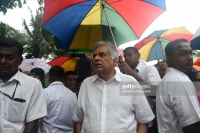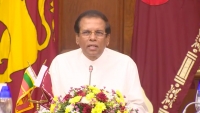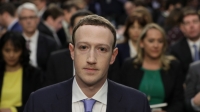The UN team, which has been put together to investigate allegations of human rights violations and war crimes against the Sri Lankan government and the Liberation Tigers of Tamil Eelam (LTTE), will be holding hearings in New York, Geneva and Bangkok, Express news service of India said.
The team constituted by the Office of the High Commissioner for Human Rights (OHCHR), would of course seek permission to hold sittings in Sri Lanka. But it is unlikely to get it as the Lankan government has rejected any international probe.
{module LOLC}
Sources said that Tamil expatriates and Lankan Tamil rights groups which are very active in North America, Europe and Australia, would testify at New York, Geneva and Bangkok. Tamils living in Lanka would be interacting through telephone, video conferencing and skype. Rights groups in Lanka might organise such interactions besides travelling abroad to testify.
There is no law in Sri Lanka to bar any citizen from testifying before a UN body, but government ministers have publicly warned that those bad mouthing Lanka at the UN inquiry would be dealt with. In the absence of a witness protection law, witnesses could be subjected to intimidation as has been the case in Lanka so far. However, as the proceedings of the Lankan government’s own Disappearances Commission show, witnesses could brave threats and testify fearlessly.
To protect witnesses against intimidation by pro-government groups, the UN team might keep their identities secret for 20 years as the earlier Darusman panel on Lanka did.
But the Lankan government could challenge the veracity of the testimonies used by the UN team on the grounds that the identities of the witnesses are shrouded mystery, as indeed it did in the case of the stinging Darusman report earlier. To counter the UN investigation, the Lankan government has started its own investigation into the charges of rights violations and war crimes by expanding the mandate of the existing Disappearances Commission. The UN and Lankan commissions would be working contemporaneously. But while the UN commission would not be able to get many Lankan Tamils resident in Lanka’s war affected areas to testify, most of those testifying before the Lankan panel would be living in the war affected parts of the island. The Lankan panel’s report is therefore likely to have greater credibility. This could provide Colombo with a good instrument to discredit the UN investigation.
Asked if the foreign advisors to the Lankan panel (Sir Desmond de Silva, Sir Geoffrey Nice, and Prof David Crane, could be counted upon to give ‘government-friendly” advice, a source said that the terms of appointment had clearly stated that they shall tender advice only when the panel seeks their advice. Also, President Rajapaksa has reserved the right to appoint more advisors.
“The Island” daily pointed out on Saturday, that while the Lankan government has revealed the composition of its panel, the UN OHCHR has not revealed the composition of its panel fully. The latter has only revealed the name of the Coordinator and those of three experts or advisors. Thus, the Lankan government seems to be more transparent. Colombo might well ask how the UN panel could be taken seriously when its composition is shrouded in mystery.
The UN panel will have very little time to do its work. lt will have to gather fresh evidence (from four different places in the world), write the report, send it to the Lankan government for its comments, and submit the final draft report by January so that it could be presented to the UN Human Rights Council in March 2015.
The Lankan panel, on the other hand, has a less cumbersome and time consuming procedure. (TNIE)












